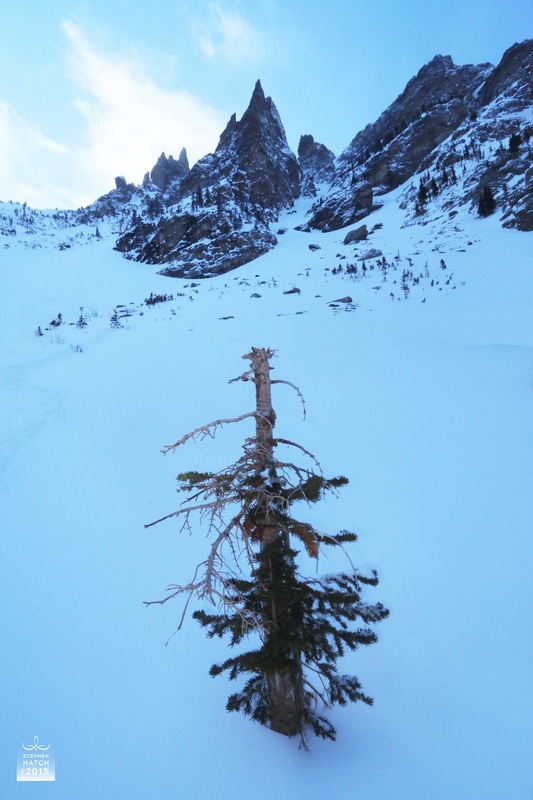|
After this week's posts, several readers have asked what I mean when I talk about merging or connecting our own human suffering with "the Divine Suffering." Because this insight - and experience - is so infrequently discussed in our current religious milieu, people are tempted to think of it in terms of the only thing they know: a theory of substitutionary atonement involving God, Jesus, human failings, guilt, punishment and death. This is unfortunate because the experience is actually quite rich, liberating and meaningful. For me, one of the most groundbreaking epiphanies I've had over the past several decades has been the realization that human suffering is actually a participation in a much broader suffering - that of The Divine. I have had quite a few people challenge me on this point, because in the history of world religions - and especially in New Age spirituality - this insight is so rare. Generally, it seems, people think of the Creative Source as being BEYOND suffering. One major source of the realization that "God suffers" comes from Alfred North Whitehead's Process Theology. Here, God is viewed as having a "di-polar" nature. On the one hand, we have the eternal, transcendent "primordial" nature of God, which ever remains buoyant and optimistic in its envisioning of new possibilities for the world. Actually, Whitehead seemed to view this aspect of God as unconscious. On the other hand, we have that aspect of God which inhabits our own experiences - and the experiences of ALL species - evolving, growing, feeling joy and suffering within OUR OWN experiences of joy and suffering. This is the "consequent" nature of God. Here, creaturely experience enriches the inner life of God, including the sufferings we experience and the methods we discover (including medicine) for working through that suffering. A second major source of the "God suffers" realization comes from Franciscan mysticism. A modern exponent of this insight is Richard Rohr, a Franciscan who runs the Center for Action and Contemplation in Albuquerque, New Mexico. Rohr talks about how God "is hopelessly in love," "suffers in the experience of rejection," and "feels like a real fool" in continually radiating love but receiving very little back. Other modern Franciscans, like Ilea DeLeo, speak of "our crucified Earth" in Its experience of human-caused destruction through pollution and de-forestation. Here, the earth is sometimes seen as "The Body of God" (as in the theology of Sallie McFague), or - in contemplatives like myself - as a "Goddess" in her own right. In any case, whenever I think of the divine rejection (in both its God and Goddess forms) I'm reminded of the mystical Jewish insight that "Because God has hidden Himself so well, almost everyone has stopped looking for Him!" As the story goes, a Hasidic rabbi had this sudden "aha!" experience when his granddaughter emerged - crying - from an especially intense game of hide-and-seek. Of course, this hiddenness arises in part because we don't at first know how to experience a Divine Presence who is, as St. Augustine says, "closer to us than we are to ourselves." Or who is, in the words of the Quran, "nearer to us than our own jugular vein." In this connection, I also find myself imagining a Creative Source who is always several steps ahead of us in this grand project of cosmic evolution, yet who has to work THROUGH US in bringing about this very evolutionary change. Imagine how lonely the Beloved must feel at the fact that we human beings grow so slowly and sluggishly? As Thomas Merton so aptly puts it, "Human loneliness is a participation in the loneliness of God." A third source of the "God suffers" insight comes from a 13th century German mystic named Meister Eckhart, who famously exclaimed: "From the beginning of eternity, God lies on a maternity bed giving birth to all." Here, the great mystic had his epiphany in realizing that divine suffering - and human suffering as well, through our own union with God - actually consists in a series of spiritual "labor pains" that are birthing a new, wholistic and liberating consciousness on earth. In all of these cases, liberation happens when we take our own sufferings and release them to a GREATER Suffering, one that is able to transform that suffering into joy and liberation through the mysterious spiritual alchemy which lies at the heart of the Divine. For me, this isn't mere theory. The fact that I am GRASPED and HELD by these insights reveals to me that there is "Someone" on the other side who is "doing" the grasping. Likewise, whenever I find myself "in the grip" of depression, physical pain, suffering over a loved one's pain or that of entire cultures - like our own Native Americans or African-Americans, especially during the era of slavery - or that of human-devastated landscapes and seascapes - I realize again that there is "Someone" - a Divine Beloved - on the other side of that grip who is the ultimate Experiencer of the suffering. Here an image comes to mind of a person in the process of undergoing a painful medical procedure. As she experiences the pain of the procedure, the patient GRIPS the arm or hand of a loved one sitting nearby as a means of consolation. And so it is, I'm convinced, with God - and with the Goddess - and US! Photo: Avalanche-damaged Englemann Spruce, and spires above Emerald Lake, Rocky Mountain National Park, CO, January 25, 2016 Please visit: http://www.resourcesforspiritualgrowth.com/
0 Comments
Leave a Reply. |
AuthorStephen Hatch, M.A. is a spiritual teacher and photographer from Fort Collins, Colorado. His approach is contemplative, inter-spiritual, and Earth-based. Archives
June 2016
Categories |

 RSS Feed
RSS Feed
